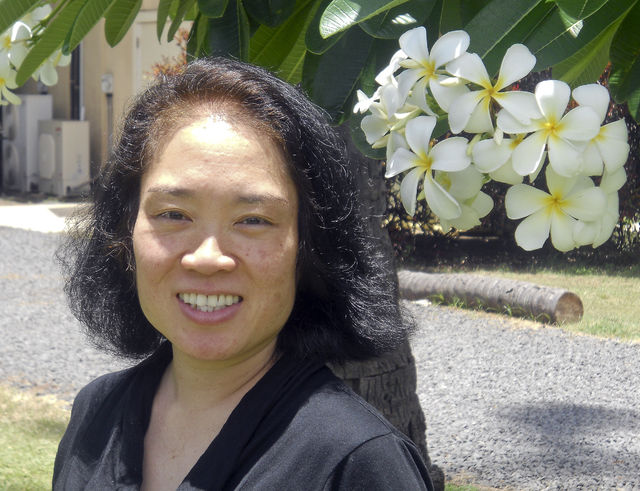LIHUE — Yoshiharu Ogata and Naoko Tsukiuama came from different socio-economic classes and cultures. Tsukiuama hailed from a prosperous Honolulu merchant family, and Ogata grew up poor, part of the laboring class on a sugar plantation on Kauai. Their love
LIHUE — Yoshiharu Ogata and Naoko Tsukiuama came from different socio-economic classes and cultures.
Tsukiuama hailed from a prosperous Honolulu merchant family, and Ogata grew up poor, part of the laboring class on a sugar plantation on Kauai. Their love story is told through narration of letters they wrote each other from 1941 to 1943 in a book, “In Love and War,” penned by their granddaughter, Melody M. Miyamoto Walters.
Walters will appear at Author Talk on Wednesday in the Lihue Public Library Children’s Room, starting at 5:30 p.m.
Through her grandparents’ experiences, Walters draws a picture of how Japanese Americans’ handling of race, ethnicity and cultural space during wartime shaped Hawaii’s postwar economic, political and social landscape. This personal look at the couple offers a unique view of Hawaii Nisei and the social and cultural history of territorial Hawaii during the World War II era.
Copies of “In Love and War” will be available for sale by the Friends of the Lihue Public Library, and Walters will be available to sign copies.
“The author is a local girl turned historian and author,” said Gerald Hirata, president of the Hanapepe Soto Zen. “Her dad and grandfather lived in McBryde Sugar Plantation Camps Nos. 2 and 3. She is a progeny of Wahiawa plantation folks. Her dad, Lynn Miyamoto, was my childhood playmate, and her grandfather, Yoshiharu Ogata, was a vocational education teacher at Waimea High School. Melody graduated from Waimea High School in 1993 and went on to the University of Hawaii at Manoa, and the Arizona State University.”
Walters, currently a professor of history at Collin College in Texas, will discuss the family stories central to the book as well as the editorial and publication process.
The event is being partnered with the Hanapepe Soto Zen Temple whose taiko and bon dance groups will offer demonstrations explaining the origins and meaning of the music and dance.




